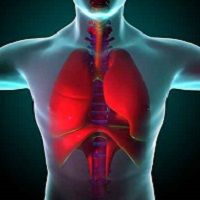Exhaled Breath Test Works, But Difficult for Some Patients
Exhaled breath condensate analysis is useful in assessing patients who are having difficulty breathing. Though the technique is non-invasive, it can be difficult for sick patients

Exhaled breath condensate (EBC) analysis is useful in assessing patients who are having difficulty breathing. Though the technique is non-invasive, it can be difficult for sick patients. Sylvie Prazakova and colleagues in the department of thoracic medicine at St.Vincent’s Hospital in Sydney, Australia reported these findings in a study titled “Exhaled breath analysis in the differentiation of pneumonia from acute pulmonary oedema” published in Herbert Open Access Journals.
The researchers recruited patients who were admitted to St. Vincent’s Hospital through the emergency room, and were diagnosed with either community acquired pneumonia (CAP) or acute cardiogenic pulmonary edema. Patients with additional respiratory disorders were excluded to avoid overlap between the groups. They included 14 patients with CAP and 12 with acute pulmonary edema. The patients were recruited within 24 hours of admission, and the exhaled breath analysis was performed as quickly as possible.
The researchers measured the biomarkers C-reactive protein, neopterin, and 5N-terminal pro-brain natriuretic peptide and fractional exhaled nitric oxide. The results of the analyses were compared with those from 15 healthy control subjects. Originally, the researchers recruited 20 subjects from each group, however, not all of the patients were able to complete the EBC collection. In order to complete that collection, the patients were required to breathe into a device for 10 minutes. Several asked to stop before enough EBC was collected.
Previous research on this particular patient population has been done based on biomarkers derived from blood samples. The researchers conducting this study hoped that EBC would offer a less invasive method that could be carried out during acute situations, and at bedside. However, they discovered instead that “patients were too breathless to willingly complete breath collection for research purposes” but that when the samples were completed, “several useful biomarkers could be identified.”
Although the small sample is a limitation, the authors had planned this only to be a preliminary study before embarking on a larger research project. Due to the fact that many patients are simply too sick to provide EBC, the “development of rapid accurate assays would be potentially useful,” because they would allow for the study of various combinations of biomarkers.